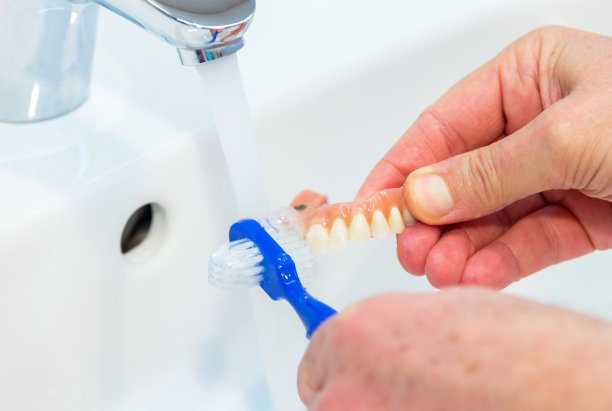Summary: After undergoing a dental filling procedure, proper recovery is essential for maintaining optimal oral health. This article outlines four key tips to ensure a successful recovery: following post-treatment care guidelines, managing discomfort effectively, adhering to dietary restrictions, and maintaining regular dental check-ups. By understanding the importance of these aspects, patients can promote healing, prevent complications, and enjoy long-lasting results from their dental fillings. Emphasizing the significance of post-operative care can transform the recovery experience, allowing individuals to regain confidence in their oral health.
1. Follow Post-Treatment Care Guidelines

Adhering to the post-treatment care guidelines provided by your dentist is crucial for a smooth recovery process. These instructions often include specific recommendations regarding oral hygiene practices, medication usage, and the need to avoid certain activities. Failing to follow these guidelines may lead to complications, such as pain, infection, or damage to the filling.
One common recommendation is to avoid touching the filling with your tongue or any foreign objects. Doing so can dislodge the filling and hinder the healing process. Additionally, its vital to use a soft-bristled toothbrush and non-abrasive toothpaste for effective cleaning without causing irritation to the treated area.
Moreover, if your dentist prescribes medication such as antibiotics or pain relievers, be sure to follow the dosage and timing instructions precisely. This will help mitigate pain and prevent infection, ensuring that your recovery is smooth and uneventful.
2. Manage Discomfort Effectively
Discomfort after a dental filling procedure is normal, but it can vary in intensity among individuals. To ensure your recovery remains comfortable, its essential to have a pain management plan in place. Over-the-counter analgesics, like ibuprofen or acetaminophen, can be effective in alleviating mild to moderate pain. Always consult with your dentist before taking any medication.
Ice packs can also provide relief. By applying an ice pack to the outside of your cheek for 15-20 minutes intervals, you can reduce swelling and numb the area, lessening discomfort. Alternating between heat and cold after the first few days can further help manage ongoing pain.
If pain persists beyond a few days or worsens, reach out to your dentist. Prolonged discomfort may indicate an issue that requires professional attention. Early intervention can help prevent complications and promote a quicker recovery.
3. Adhere to Dietary Restrictions
Immediately after receiving a dental filling, its essential to be cautious about what you eat. Your dentist may advise you to avoid hot or cold foods and drinks for the first 24 hours, especially if you received a local anesthetic. Numbness may persist, increasing the risk of biting your tongue or cheek.
Soft foods are ideal in the days following the procedure. Options like yogurt, mashed potatoes, and smoothies are gentle on your teeth and will allow for a more comfortable eating experience. Avoid sticky or hard foods, as they can dislodge the filling or cause discomfort.
Also, be mindful of consuming any substances that may irritate the filling, like highly acidic or sugary items. While dental fillings are durable, maintaining a cautious approach to diet can prolong the life of the filling and assist in optimal healing.
4. Maintain Regular Dental Check-Ups
Establishing and maintaining regular dental check-ups is essential for ongoing oral health, especially after a dental filling. Follow-up visits allow your dentist to monitor the fillings integrity and assess your overall oral health. These appointments can also help identify any potential issues before they escalate into more serious problems.
During these visits, dont hesitate to discuss any concerns you may have about your filling or general dental health. This proactive approach not only helps facilitate a successful recovery but also promotes long-term oral health.
Ultimately, regular dental check-ups foster a trusting relationship between you and your dentist, ensuring open communication and tailored treatments that benefit your overall well-being.
Summary:
Post-treatment care following a dental filling procedure is paramount for achieving optimal oral health. Following your dentists guidelines, managing discomfort effectively, adhering to dietary restrictions, and maintaining regular check-ups contribute to a successful recovery. Each of these elements plays a significant role in promoting healing and preventing complications.
By prioritizing these aspects, patients can enjoy lasting results from their dental fillings, enhancing both their oral health and confidence in their smile.
This article is compiled by Vickong Dental and the content is for reference only.
Vickong Dental
Vickong Dental is a large medical group established in Hong Kong in 2008 by professors from well-known medical universities in Guangdong and Hong Kong, as well as medical doctors from key national '985' universities (including Master's supervisors and senior professors). The chain of branches brings together expert dentists with PhDs and Master's degrees from Hong Kong and Mainland China, committed to providing high-quality dental treatment.
"Vickong Dental Practices the University Motto of 'Healing and Serving Society,' with a Stable Operation for Sixteen Years. It Has Been honored with Hong Kong Enterprise Leaders's Choice,' and is a Global Trusted Implant Center for the Nobel Implant System. Recommended by Hong Kong Metro Broadcast and Guangdong Television, it Serves Customers from Over Thirty Countries and Regions, Gaining the Trust and Favor of Citizens from the Guangdong-Hong Kong-Macau Greater Bay Area and Surrounding Cities.

Thousands of customers' unanimous praise
The most recognized and highly recommended dental service by customers in the Guangdong-Hong Kong-Macau Greater Bay Area
We Ensure You Receive Detailed Care and Attention Here
Hong Kong standards, Shenzhen prices, Your Trusted English-speaking dentists

Vickong Dental Medical-Grade Instrument Disinfection Process
Vickong Dental Medical-Grade Instrument Disinfection Process

Vickong Dental Chain: A Warm and Comfortable Environment for Treatment






Appointment Hours

Q&A
Why choose Vickong Dental?
Vickong Dental practices the university motto 「Medicine to Benefit Society」, with each branch bringing together highly qualified dentists with doctoral and master’s degrees from Hong Kong and the Mainland, and has maintained seventeen years of steady operation。Recipient of 「2024 Hong Kong Enterprise Leaders Brand」, 「2025 Hong Kong Enterprise Leaders Brand」, a Nobel Biocare Global Trusted Implant Center, and a brand recommended by Metro Radio Hong Kong and Guangdong TV。
To date, we have served customers from more than thirty countries and regions,earning exceptionally high word-of-mouth recognition and trusted recommendations from residents across the Guangdong-Hong Kong-Macao Greater Bay Area and surrounding cities
We have eight major branches in Zhuhai、Shenzhen,and a consultation and service assurance center in Hong Kong,so you can book a free consultation at any time for any questions,which is very reassuring.
If I do not accept the quotation after the CT scan, will I be charged??
No! As long as the actual treatment has not started, you will not be charged any fees.
Will there be any additional charges during the treatment process?
No, there won’t be any additional charges. Before treatment begins, we will clearly explain the treatment plan and its corresponding fees. Only after the patient agrees and signs the consent form will we proceed with the dental service.
Can I pay in Hong Kong dollars?
Yes. Vickong Dental accepts payment in Hong Kong dollars. The amount will be converted based on the exchange rate of the day, and the applicable rate will be clearly communicated to you in advance.
Can I reschedule my appointment at any time?
Yes. Please contact us via **WeChat** or **WhatsApp** as early as possible, providing your original appointment time and details, along with your preferred new date and time slot for rescheduling.













